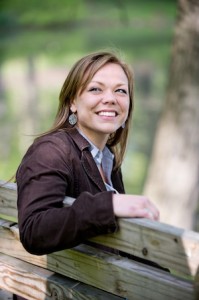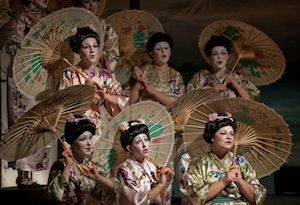[dropcap3]I[/dropcap3] did not want to go to college. The very thought of school provoked emotional upheaval. I just wanted to love people, and four years and thousands of dollars seemed like an impressive waste. But society informed me that I needed to receive an education so that I could get a degree so that I could have a career so that I could be a responsible adult. Grudgingly, and under God’s sovereignty, I applied to Philadelphia Biblical University. Here, I plunged into life as a student amidst hundreds of strangers.
By God’s grace, I have nearly made it. In December, I will receive that anticipated diploma. But the ornamented sheet of paper represents only a fragment of what I learned in my time here. My educational experience supersedes Power Points and textbooks. It occurred in the classroom, of course, but also in the cafeteria, beneath the giant tree by the walkway, in my apartment. It transpired through listening to others, laughing with them, and crying with them. I have learned about what it means to be a human being, a part of creation, a lover of others, and a friend of God without earning a single credit. I learned it by living in community.
On the surface, forming a college community does not seem difficult: Gather hundreds of diverse students together. Mix. Sprinkle in faculty and staff, and presto! But to develop a Christ-centered, valuable community —one that does not split over differences and push an individualistic agenda – demands a lot more. From my experience, these, too, must be added: genuineness, honesty, forgiveness, fun, vulnerability, and selflessness. Mostly, it requires a lot of time and willingness to grow. These relationships are edified through working together in periods of joy and periods of sorrow.
 “Rejoice with those who rejoice”
“Rejoice with those who rejoice”
(Romans 12:15a)
There is nothing better than the pleasure of enjoying others’ company. One of my favorite places to watch this unfold is in the cafeteria where the only governing social law is: “There is always room at a round table.” Laughter rises up from the different groups as they discuss the day. Sometimes the conversation is more substantial, focusing on theology or ethics. Fellowship happens as we eat together and talk, learning about each other and sharing our lives.
Fellowship happens in student groups also. I found, as a part of the University Chorale that in addition to the fun, there is an organic, transcendent beauty of singing spiritual truths together. But the most valuable memories of my years in chorale are the nuggets of wisdom Dr. Shockey shared with us. His leadership helped us learn and grow together.
“Weep with those who weep”
(Romans 12:15b)
Community is also built in the difficult times. In June of 2008, I was in a serious car accident, leaving me hospitalized for two weeks and on crutches for six months. The response of the PBU community was ethereal. I received cards, phone calls, and visits from dozens of students and faculty. I was told hundreds of times that people were praying for me. When I returned to PBU, students took care of my physical needs by opening doors, driving me places, and getting me meals. But they also approached me with genuine earnestness in regards to my emotional and spiritual health. Through their hands, God carried me.
“Owe no one anything, except to love each other”
(Romans 13:8a)
 Oh, PBU is far from perfect. Depravity has slithered in through the cracks in the walls and touched us all. I have had friends that have endured pain, been betrayed, felt abandoned, and fallen into sin. But there is beauty in brokenness. Journaling in response to my experience on a PBU mission trip to South Africa, I compared my expectations to a colored glass box that God threw to the ground. Staring at the dirt, I saw a rainbow of glass pieces, for God had broken my team member’s expectations as well. Through this, He brought redemption: “God crouched down and picked up the shards of glass one-by-one. He dipped them into life and tears and laughter and purpose and community. And with great care, he constructed a mosaic of stained glass that illuminated in his light, each piece unique and deliberate, fused together by His love and will. And I see now how much more breathtakingly beautiful we are after we had been broken and reshaped together.”
Oh, PBU is far from perfect. Depravity has slithered in through the cracks in the walls and touched us all. I have had friends that have endured pain, been betrayed, felt abandoned, and fallen into sin. But there is beauty in brokenness. Journaling in response to my experience on a PBU mission trip to South Africa, I compared my expectations to a colored glass box that God threw to the ground. Staring at the dirt, I saw a rainbow of glass pieces, for God had broken my team member’s expectations as well. Through this, He brought redemption: “God crouched down and picked up the shards of glass one-by-one. He dipped them into life and tears and laughter and purpose and community. And with great care, he constructed a mosaic of stained glass that illuminated in his light, each piece unique and deliberate, fused together by His love and will. And I see now how much more breathtakingly beautiful we are after we had been broken and reshaped together.”
Believers are being watched by members of a shattered world in need of hope. We would be no different, were it not for being compiled and beautified by God’s grace. When we love each other as Christ has loved us, we testify to the mysterious reality of His goodness. This is what I learned in my four years at PBU. This is what made the time and money more than worthwhile. God is faithful through us and despite of us. And He is well worth sharing.
[framed_box]Kristin Richter is a senior in the Secondary English Education Program. In her time at PBU she has performed in the University Chorale and PBU’s Opera Workshop productions, and has worked in Admissions as a member of the Nexus team and as a Resident Assistant in Penndel. She expects to graduate in December 2010.
[/framed_box]